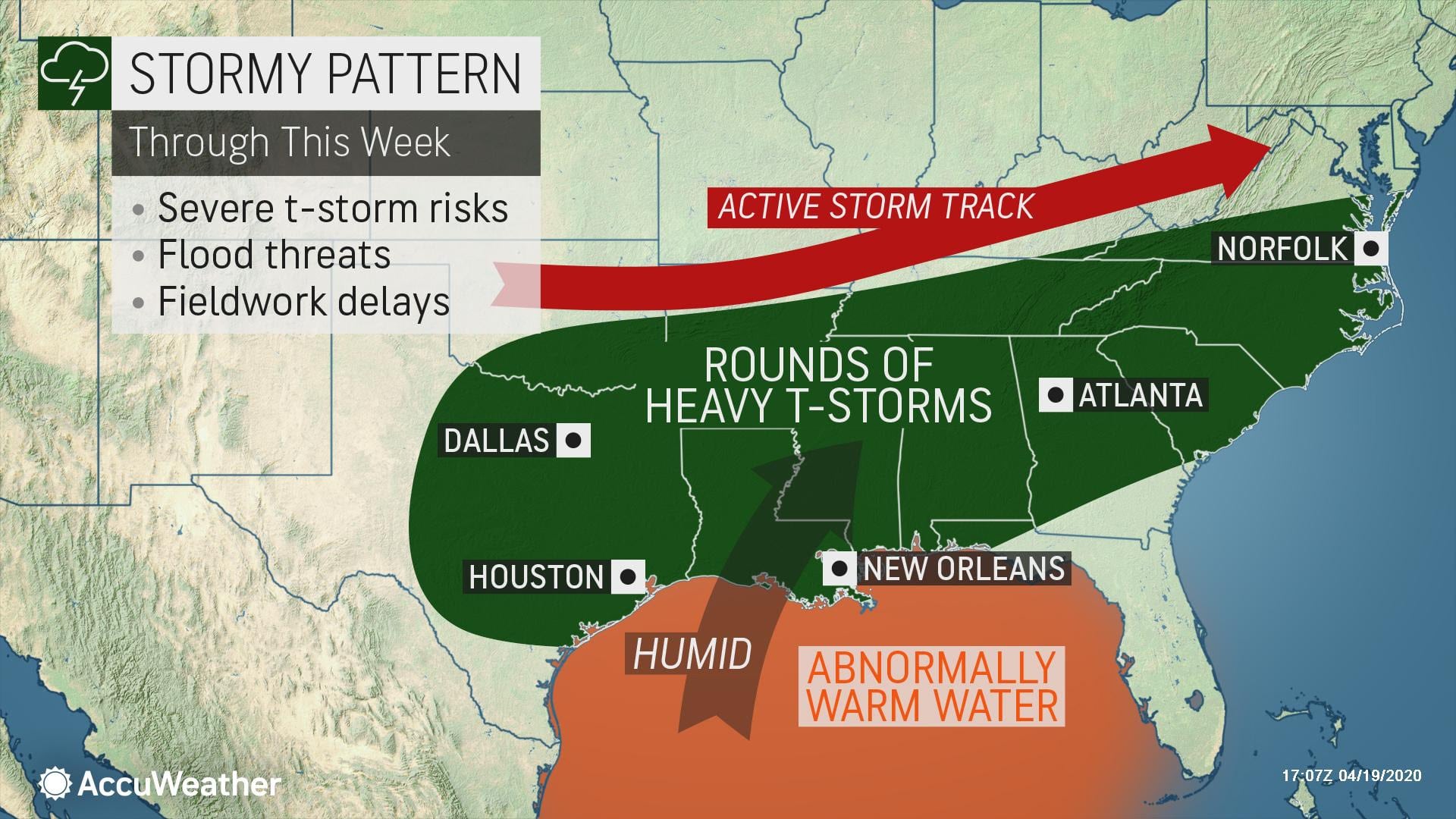One week after the Easter Sunday tornado outbreak, parts of the South will once again be at risk for more dangerous weather.
As cold air retreats and opens the door for warmer days, frequent storm systems will continue to roll along and could spark rounds of severe weather every few days in the southern United States — and forecasters say the stormy pattern won’t be quick to dissipate.
The period from late April to May typically brings a major uptick in severe weather and tornadoes. However, the weather pattern this spring is already showing signs of being more robust and active than average in terms of violent weather.
2020’s tornado numbers are above average and on pace to rank in the upper 25th percentile, according to the National Weather Service Storm Prediction Center (SPC). There have been 398 confirmed tornadoes so far this year through April 17.
“Since the 1950s, the year 2011 brought the most EF1 or stronger tornadoes with just under 900, and the year 2004 brought the most tornadoes, including EF0 storms, with more than 1,800,” AccuWeather Meteorologist Jesse Ferrell said.
The busy nature of severe weather in recent weeks is likely to get busier, according to AccuWeather meteorologists.
“The pattern looks loaded for severe weather and tornado risk during the latter part of April through at least early May,” Paul Pastelok, AccuWeather’s top long-range forecaster, said.
There is the potential for severe weather to strike the South approximately every two to four days over the next few weeks. Just as one storm system with severe weather departs by way of the Atlantic Ocean, a new storm system will likely be pushing out of the Rockies and toward the Mississippi Valley with a new threat.
Following an anticipated new severe weather outbreak from Sunday afternoon to early Monday over the South Central and Southeast states, another burst of severe storms is possible from Wednesday to Thursday over roughly the same area.
Yet another episode of violent weather is possible spanning Friday, April 24, to Sunday, April 26.
The eruptions of thunderstorms may not amount to massive severe weather and tornado outbreaks like that of Easter weekend, but even small severe weather events can devastate some communities and cause damage and potential loss of life.
“While the exact dates on the thunderstorm rounds and severe weather may be adjusted over time, the point is we are seeing a setup that favors severe weather repeat over and over in the coming weeks,” Pastelok said.
AccuWeather’s long-range team first warned of a very active spring severe weather season for the lower Mississippi Valley during its spring 2020 outlook for the U.S., which was released on Feb. 5.
A larger-scale outbreak may ignite, especially if a large buckle develops in the jet stream, which would allow warmth to build over a broad scale in the Central and Eastern states, at the end of April and into the start of May. Such a system could bring severe weather to not only the South, but also farther west over portions of the Plains and farther north over portions of the Midwest and perhaps the Northeast.
An overall warmer weather pattern is predicted over much of the Central and Eastern states starting late this week; however, there will continue to be fluctuation in temperatures from day to day.
Temperature swings like those expected this week, combined with a strong jet stream overhead, tend to contribute to thunderstorm intensity during the spring.
The much busier-than-average severe weather season this spring is likely to put added strain on officials and communities already facing a new normal amid the COVID-19 pandemic. Cities and towns that were battered by tornadoes over Easter weekend are already coping with both disasters at the same time.
Disclosure: This article may contain affiliate links, meaning we could earn a commission if you make a purchase through these links.






